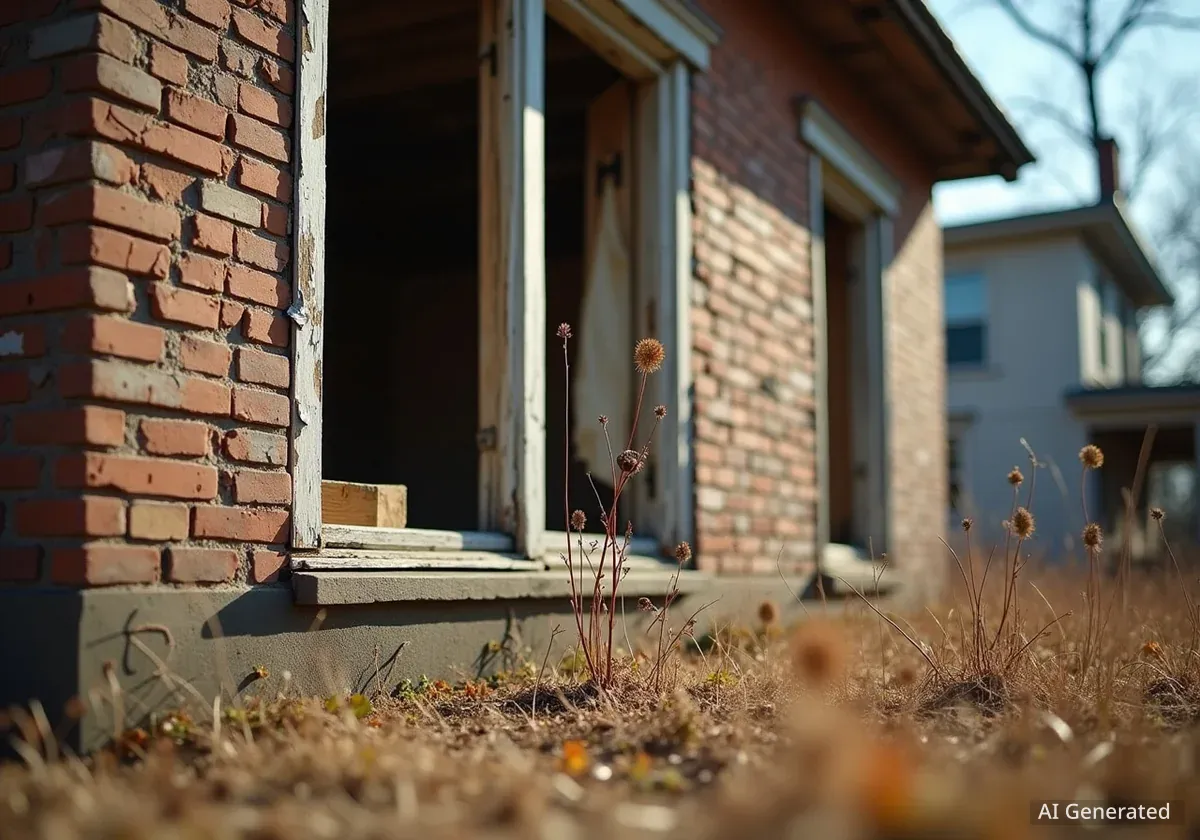The childhood home of the artist formerly known as Kanye West, now legally Ye, is facing financial trouble. The property, located in Chicago's South Shore neighborhood, has delinquent property taxes, adding another challenge to the celebrity's sprawling but reportedly troubled real estate portfolio.
This development raises questions about the future of a property Ye once intended to transform into a community arts hub, a tribute to his late mother, Donda West, who raised him there. The unpaid taxes signal potential instability within his broader financial and property holdings, which span from California to Wyoming.
Key Takeaways
- Ye's childhood home in Chicago's South Shore has delinquent property taxes.
- The property was purchased by Ye with plans to convert it into a community arts center.
- This issue is part of a wider pattern of challenges within his extensive real estate empire.
- The home holds significant personal value, being the house where his late mother, Donda West, raised him.
A Home Steeped in History and Promise
The modest house on South Shore Drive is more than just a building; it's a landmark in Ye's personal history and musical narrative. It was here that his mother, Dr. Donda West, an English professor, raised him. The home is deeply woven into his identity and was a source of inspiration throughout his career.
In recent years, Ye reacquired the home with ambitious public plans. He announced intentions to renovate the property and establish it as a community arts incubator. The vision was to create a space that would support local artists and provide creative outlets for the youth of Chicago, honoring his mother's legacy as an educator and his own artistic roots.
However, those plans have yet to materialize. The current tax delinquency casts a shadow over the project's future, leaving the community to wonder if the promised arts hub will ever become a reality.
The Donda West Connection
Dr. Donda C. West, an influential figure in her son's life, was a respected academic who spent 24 years as a professor at Chicago State University's Department of English, Communications, Media and Theater. Her passing in 2007 profoundly impacted Ye, and many of his subsequent projects, including the planned arts center at his childhood home, were intended to honor her memory and contributions to education and the arts.
Financial Strains on a Real Estate Empire
The situation with the Chicago home is not an isolated incident. It appears to be a symptom of broader issues within Ye's extensive and eclectic collection of properties. His real estate holdings are known to be vast, including a minimalist mansion in Hidden Hills, California, a brutalist beachfront property in Malibu, and sprawling ranches in Wyoming.
Many of these properties have been subjects of public curiosity and media reports, often for their unique architectural styles or for sitting unfinished for long periods. The delinquent taxes in Chicago suggest that managing this far-flung empire may be proving difficult. Maintaining such a diverse portfolio requires significant and consistent financial outlay for taxes, maintenance, and security, which can become a strain without stable income streams.
A Portfolio Under Pressure
Ye's real estate holdings are estimated to be worth tens of millions of dollars, but managing them involves substantial costs:
- Property Taxes: High-value properties in states like California and Illinois come with significant annual tax bills.
- Maintenance: Unique architectural properties often require specialized and expensive upkeep.
- Unfinished Projects: Properties like his Malibu home have reportedly remained under construction for years, incurring costs without providing utility.
These financial pressures have mounted in the wake of significant changes to his business ventures. Following a series of controversial public statements, major corporate partners, including Adidas and Gap, severed ties with him. The dissolution of these lucrative partnerships has undoubtedly impacted his financial stability and ability to fund both personal and philanthropic projects, such as the renovation of his childhood home.
The Future of a Neighborhood Landmark
For residents of South Shore, the house on the corner is more than just a celebrity property; it is a potential community asset. The initial announcement of an arts center was met with optimism, seen as a positive investment in the neighborhood's cultural life. The current state of uncertainty is a disappointment for those who hoped to see the project come to fruition.
Property tax delinquency can have serious consequences. If the taxes remain unpaid, the property could eventually be subject to a tax sale, where investors can purchase the tax debt. This process could ultimately lead to a loss of ownership, jeopardizing any future plans for the home, whether personal or for the community.
"When an owner falls behind on property taxes, it starts a legal process that can be difficult to reverse. It's a clear indicator of financial distress and puts the property's future at risk."
The fate of the Chicago home now serves as a tangible symbol of the challenges facing its famous owner. It represents a conflict between a celebrated past and an uncertain future. The community watches on, hoping that a piece of local history tied to one of Chicago's most famous sons can be preserved and fulfill its promised potential.
As of now, the home remains in a state of limbo. The unpaid taxes are a matter of public record, and the next steps will depend on whether Ye's organization addresses the delinquency. For a property that was meant to be a beacon of creativity and a tribute to a beloved mother, its current situation is a stark reminder of how quickly ambitious plans can be derailed by financial complications.





